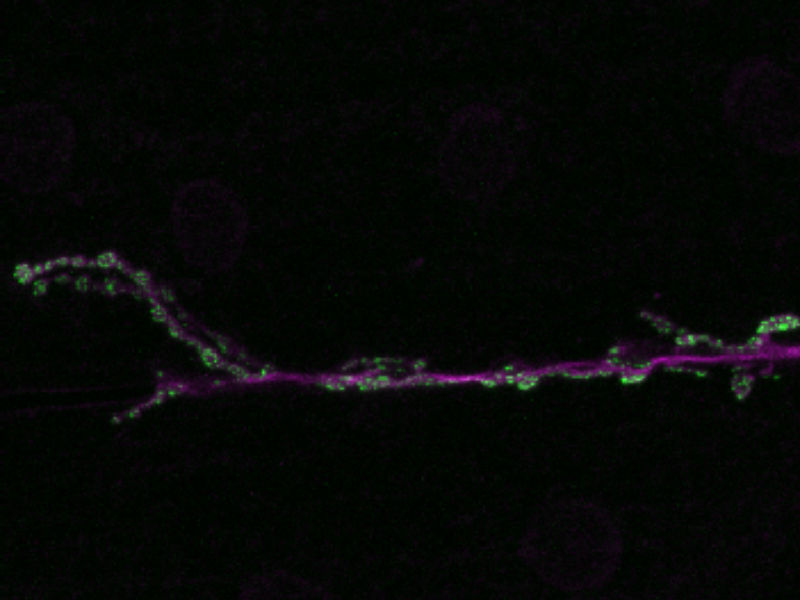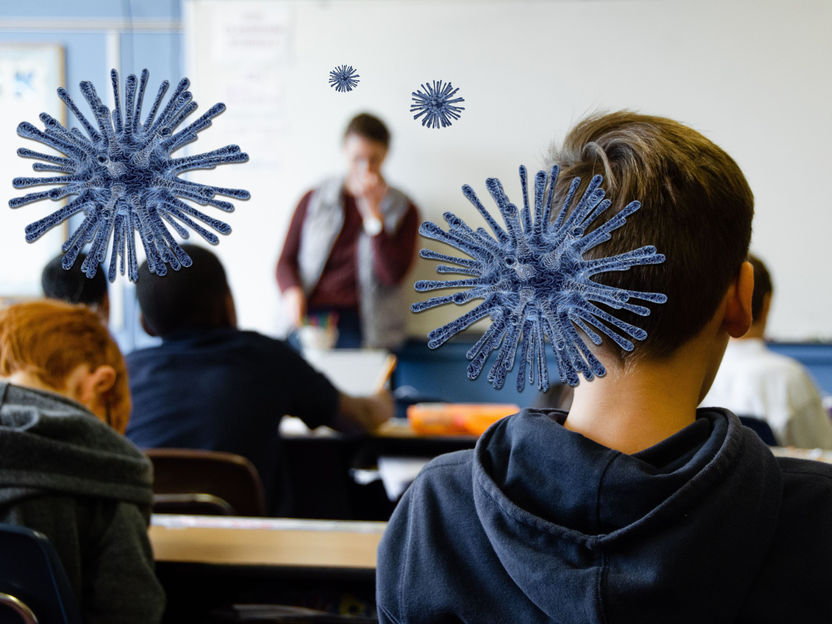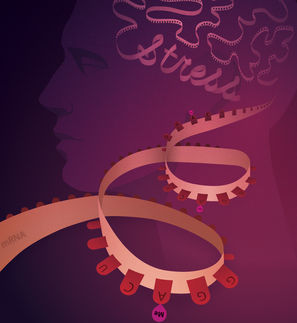"Memory" of nicotine lingers in the brain, say Scripps Research Scientists
Persistence May Have Implications for Kicking the Smoking Habit
Scientists at The Scripps Research Institute and Scripps Florida are reporting the results of one of the first studies looking at the long-term neurological effects of nicotine addiction on the brain's reward system. Their findings may have significant implications for people who are trying to quit smoking.
Associate Professor Athina Markou, Ph.D., who is in the Scripps Research Molecular and Integrative Neurosciences Department at Scripps Research's La Jolla Campus, and Paul Kenny, Ph.D., a former Research Associate in her laboratory, report in an upcoming issue of Neuropsychopharmacology that nicotine has an unusual psychological property that may drive dependence. Nicotine induces a long-lasting activation of the brain's reward systems that is not seen after excessive consumption of other drugs of abuse, such as cocaine or heroin. This slight elevation in mood is there regardless of how much nicotine is consumed, and it persists long after the nicotine is gone from the body. "It's almost a memory of nicotine in the brain," says Kenny, who is now a staff scientist at Scripps Florida. "The reward system becomes hyperactive, even when the nicotine isn't there."
This persistence of reward activity, Kenny adds, appears unique to nicotine among drugs of abuse and is probably crucial in maintaining the nicotine habit. Knowing this may have relevance to prevention of nicotine addiction and smoking cessation programs.
In the last few years, Markou and her colleagues at Scripps Research and at Novartis Pharma AG have been funded by a multi-year, $3.45 million grant from the National Institute of Mental Health (NIMH) and the National Institute on Drug Abuse (NIDA) to design new ways to treat depression and nicotine addiction. One of the goals of this grant is to look at the connection between cigarette smoking and depression, which could shed light on what makes nicotine so addictive, and how the same sorts of compounds used to treat depression might be used to treat nicotine addiction.
Their interest in the connection between cigarette smoking and depression is what led Markou and Kenny to study the effect of nicotine on the brain's natural reward system. Although nicotine does not induce intoxication, Markou and Kenny expected the neurobiology of nicotine addiction to be similar to other addictive substances such as cocaine and heroin, in which these chemicals affects neurocircuitry in the reward centers of the brain and induce a measurable elevation in mood directly related to the presence of these drugs. This pleasurable action likely contributes to establishing the drug habit. Then, hours later when cocaine or heroin is no longer present, there is a diminished sensitivity to rewarding stimuli - the so-called 'crash' associated with drug withdrawal.
In their study, Markou and Kenny looked at the effect of nicotine self-administration on brain reward systems in laboratory rodents. They allowed the rodents to have extended access to nicotine self-administration, and they directly measured the changes in neuronal activity in the brain. As predicted, the scientists found that nicotine acutely stimulates the brain's reward system and seems to enhance the normal pleasures in the environment for hours. Unexpectedly, however, rather than the depression-like state induced when cocaine and heroin leave the system, nicotine's elevation of mood persists. The measurements of neuronal activity in the brain's reward system one hour after the nicotine consumption looked similar to those twelve hours after consumption. In fact, this increased sensitivity to reward persists for days or weeks after the nicotine disappears. The excitation of these systems cannot be due to the presence in the brain of nicotine, which is readily metabolized by enzymes in the body so that all traces of it are gone after a matter of about three to four hours.
So if the nicotine is metabolized and cannot be responsible for the elevation in mood, what is the explanation? One possibility is that nicotine leads to an upregulation of the brain receptors to which it binds--the nicotinic receptors. Since the neurotransmitter acetylcholine also binds to these receptors, the elevation in nicotinic receptors due to nicotine may be behind the persistent elevation in mood. Interestingly, a similar increase in activity of brain reward systems is seen in hungry rats. It is an interesting possibility that nicotine may be hitting the same reward pathways in the brain responsible for regulating the rewarding effects of food.
Other news from the department science

Get the life science industry in your inbox
By submitting this form you agree that LUMITOS AG will send you the newsletter(s) selected above by email. Your data will not be passed on to third parties. Your data will be stored and processed in accordance with our data protection regulations. LUMITOS may contact you by email for the purpose of advertising or market and opinion surveys. You can revoke your consent at any time without giving reasons to LUMITOS AG, Ernst-Augustin-Str. 2, 12489 Berlin, Germany or by e-mail at revoke@lumitos.com with effect for the future. In addition, each email contains a link to unsubscribe from the corresponding newsletter.
Most read news
More news from our other portals
Last viewed contents
EPO for the Brain - Engineered Moss produces human hormone without doping activity
ProtAffin AG granted patent in EU for CellJammer discovery technology - Novel technology enables development of a new class of biopharmaceuticals

CSIC researchers find the role of a protein in the regulation of synapse formation - The work raises the need for a balance between the Pinkman protein and the sHSPs proteins during the development of the nervous system for its correct formation
Affymetrix Selected to Genotype More Than 9,000 Framingham Heart Study Samples - SHARE Project to Help Identify Genetic Variants Associated With Heart, Lung, Blood and Sleep Disorders

New app calculates corona infection risk in rooms - Size of aerosol droplets that virus carriers release strongly influences infectivity
Northern_Norway_Pharmaceutical_Trust

Cell culture: The opportunities and the challenges - The promise of cell culture is accelerating demand, and emphasising the challenges, of this process
Crucell Teams up with ACE BioSciences and Harvard to Accelerate Bacterial Antibody Program
St_John_Ambulance_in_England_and_Wales
Harold_Ridley_(ophthalmologist)
Henry_Suter


















































